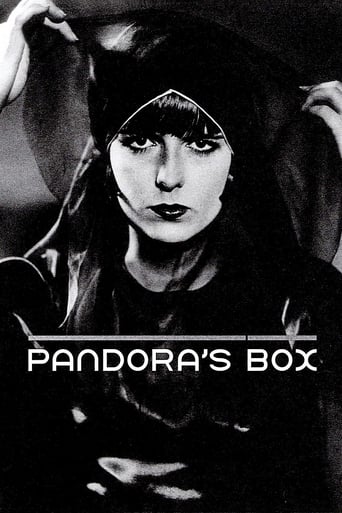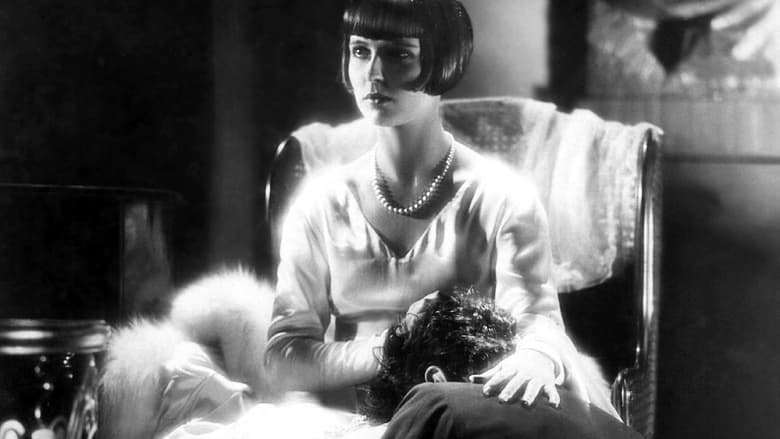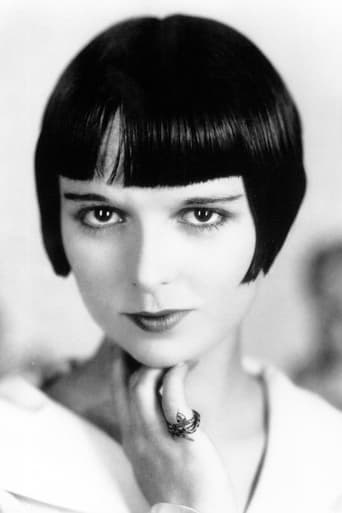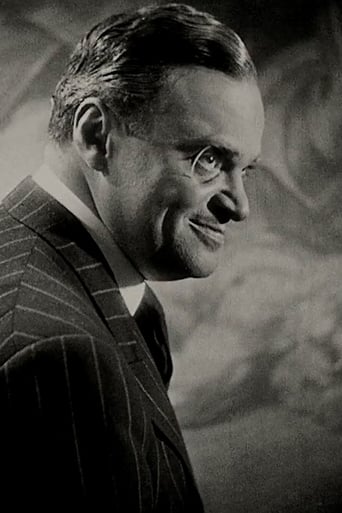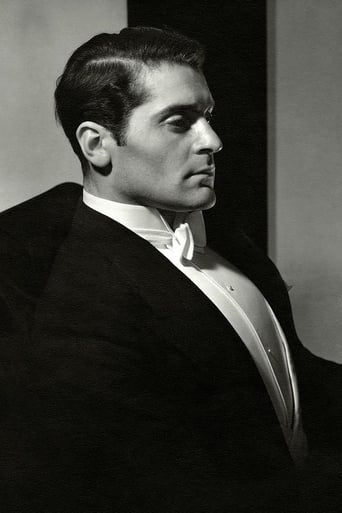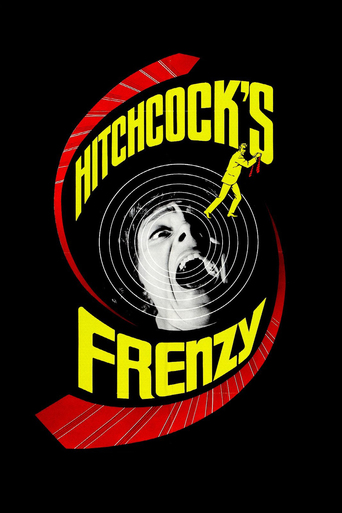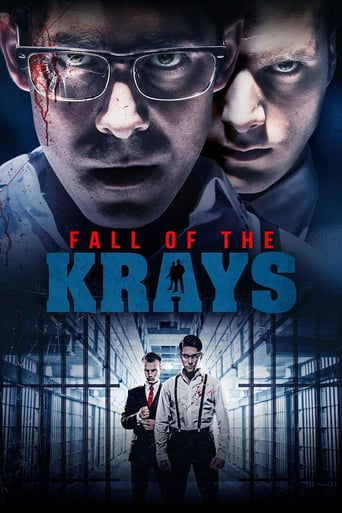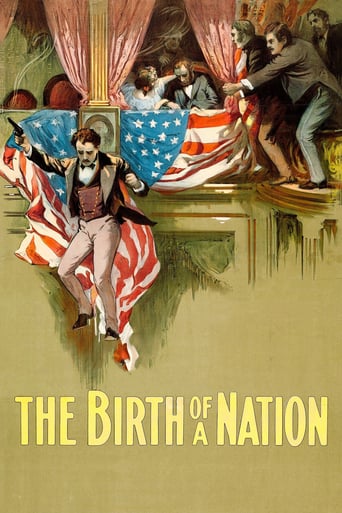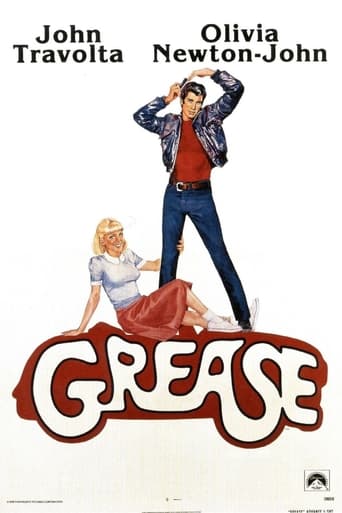Pandora's Box (1929)
Lulu is a young woman so beautiful and alluring that few can resist her siren charms. The men drawn into her web include respectable newspaper publisher Dr. Ludwig Schön, his musical producer son Alwa, circus performer Rodrigo Quast, and seedy old Schigolch. When Lulu's charms inevitably lead to tragedy, the downward spiral encompasses them all.
Watch Trailer
Cast


Similar titles
Reviews
I love this movie so much
Powerful
Memorable, crazy movie
It is encouraging that the film ends so strongly.Otherwise, it wouldn't have been a particularly memorable film
'Pandora's Box' is what 'It' might have looked had it been written by Erich von Stroheim and directed by FW Murnau. Instead of a romantic comedy, we get a softly lit noir where the sexy flirtatious girl is caught up in a web of crime and devious desires. The Greek myth of Pandora claims her to be a beautiful charming girl who brings evil to all around her, and with Lulu representing Pandora, the film doesn't deviate from this script, although as one misadventure brings about another, we see her get a weighty dose of Karma, and become quite a memorable anti-hero. Just as Lulu's flaws are laid bare however, so are those of the male characters, who one after the other fall for her, and bring their own wickedness to the frame.Not being familiar with the story before watching, and not quite understanding the censorship in place in 1929, I wasn't sure if she was a prostitute or not (it is heavily hinted at, rather than shown explicitly). It made sense in the number of men she lead on, but not in the way they appeared to desire her love and marriage, while another who claimed to be her father acted more like a wannabe over. Even the newly married husband thought he was not father but lover, and wanted to kill because of it. Surely the groom wouldn't make that mistake! The uncertainty made the plot hard to swallow at times, and enticingly mysterious at others, so it was a double edged sword, but either way neither she nor any of the characters are particularly likable. At over two hours the film drags a bit, too much I think for anyone previously unfamiliar with silents, and with Lulu's unlikely escapes from the law, you need to take a few small leaps with the script. To the stories credit however, it is always told through action and dialogue, which is a great improvement on the many title-card reliant silents of the time.Aside from the strong cast performances, the most winning feature is the mood and atmosphere created by GW Pabst and co. The cinematography, particularly in the back half of the film, is stunning, and the shadowy darkness captures the evil lurking beneath, while the softness gives it all a kind of depressing romantic charm, as if to say, even in this sad place, there is beauty. The misty scenes at the end bring to mind Von Sternberg's compellingly shot unromantic romance 'Docks of New York'. The old saying is that you can't polish a turd - ie. you can't make a good film from a poor story- but these types of films provide a case that with strong photography, you can certainly make improvements.
Lulu grew up in horrible conditions and the only person who comes close to a father figure is an alcoholic pimp. "Too bad," he tells her as Jack the Ripper roams the dusky alleyways of London and they both are starving, "I'd have liked to taste Christmas pudding one more time before I die." Played with incredible sex appeal by Louise Brooks (herself sexually abused as a child, according to Wikipedia), Lulu tries to get by as long as possible banking on her pretty face and adorable figure. Sex gets her everything she wants till she accidentally kills her sugar daddy (the handsome older actor Fritz Kortner). Once this wealthy, sophisticated but ultimately dumb benefactor is out of the picture, Lulu can no longer run away from life's harsh realities. Turning to the only means of survival she has ever known, she becomes a sitting duck for the worst that life has to offer. Having absolutely no compass for trustworthiness -- how could she? -- she trusts the wrong guy. What are we to take from this grim tale? Must birth be destiny? Is life a mere rehearsal for disaster? Let's hope not. Whatever one's circumstances, we can try to lead an examined life and establish a reliable, legal way to earn one's bread. Poor Lulu. Poor Countess Geschwitz (compellingly played by Alice Roberts). I hope this movie lives forever. It's important viewing.
. . . when one could call a shovel a shovel without getting a Nastygram from the Thought Police, daring Germans (not Neo-Nazis, but Pre-Nazis) made one of the most decadent films ever, giving it a title sleazier than OCTOPU$$Y's. Nowadays you'd have to break through figurative (or, if there's any video stores left around, literal) firewalls to view a flick entitled PANDORA'S BOX. To put it as delicately as possible, the makers of this 134-minute silent epic (I viewed the complete film--NOT the censored 109-minute version that this IMDb page covers) are shouting out that their story is about CHARLOTTE'S HUNT, if you switch the first letters of those two words. The harlot in question is "Lulu," who kills men with the same anatomical feature used for slaying by the women of LIQUID SKY. Some may quibble that Lulu occasionally resorts to Lugers, but what the hey. A more salient point is the extent to which PANDORA'S BOX exploits then-rampant Anti-Semitic stereotypes on the eve of history's most famous Holocaust. A case could be made that PANDORA'S BOX is more accurate than Nostradamus in providing a complete allegorical outline of WWII in the Atlantic Theater, right down to Lulu's Christmas Last Stand foretelling the Battle of the Bulge.
The Germans had a thing for men degrading and debasing themselves without limits for women. For Louise Brooks, maybe it was worth it. This is a silent film worth seeing.The myth of Pandora* is heartbreaking, and this movie actually follows it rather closely. Louise Brooks plays Lulu, a rather naive prostitute beloved of Professor Schon. Dr. Schon is engaged to a proper lady, but he cannot escape the lure of Lulu. He marries Lulu, but he cannot control her, and she continues her erotic behavior with others. In a rage he attacks her, she struggles, she kills him. She is convicted for the crime, but escapes before she goes to prison. She has seduced Dr. Schon's son Alwa, who takes her away.For her escape, they go to other countries, and Alwa's money is soon exhausted. Thus begins the spiral into sordid tragedy. Lulu supports Alwa and her pimp by prostituting herself again. Eventually, Alwa sinks so low he comes to himself and leaves her as she takes a john to their room. (At least Alwa ends up better off than Professor Rath in "The Blue Angel.") Ironically, the lover is Jack the Ripper,** who murders Lulu - a circumstance of which Alwa remains oblivious as he walks away down the street. He has given up everything he had for the love of her. She has lost her life, another prostitute victim of a serial killer. Perhaps there is hope for Alwa. Or maybe not. Who knows what's left in Pandora's Box as the curtain is drawn on Alwa's wretched life?The direction is fabulous. G.W. Pabst was at the height of his talent in 1930, and this movie shows it. All the actors were topnotch: Fritz Kortner as Professor Schon, Francis Lederer as Alwa, and Carl Goetz as the scummy Schigolch (the pimp who pretends to be her father). Louise Brooks is one of the most beautiful women of the 20th Century, and her acting here is flawless, natural. Her power over Schon and his son flows from her face and her body. This film may be the first to show a lesbian relationship between two women (Lulu and Countess Anna), and the version I saw was missing the scenes that show the end of their relationship, leaving a puzzling gap in the story line.It's interesting to contrast this movie with "The Blue Angel," with Marlena Dietrich as Lola. Dietrich steals the show, of course, with her iconic characterization of the woman of easy virtue, but Lola is never a person we sympathize with. Lulu, on the other hand, has our feelings from the beginning. Lulu is much more complex than Lola, and Brooks inhabits the role completely. (Dietrich inhabits Lola, too, of course -- but Lola has no heart.)*Prometheus brought mortal men fire, making them more nearly like gods. To punish Prometheus, the gods created Pandora, the first woman. Each god gave her a virtue which she was made to carry to Prometheus in a box. (I understand that Pandora means "all gifts.") Prometheus (which means foresight), wary of women bearing gifts from the gods, sent her away, and he changed all those virtues into evils. Prometheus's brother Epimetheus (hindsight) fell in love with her; Prometheus forbade Pandora and him ever to open the box, but curiosity overcame her. And when she opened the box, all evils were loosed upon the world, leaving her (and mankind) with only hope in the box. (There are other similar stories about a woman loosing evil upon the world because she failed to follow her instructions.)**Interestingly, the costumes are current for 1929, the year of the movie, and not the times of Jack the Ripper. In this regard, it is similar to "Mating Call," a Twenties film set before the time of its making but showing flappers in all their glory.

